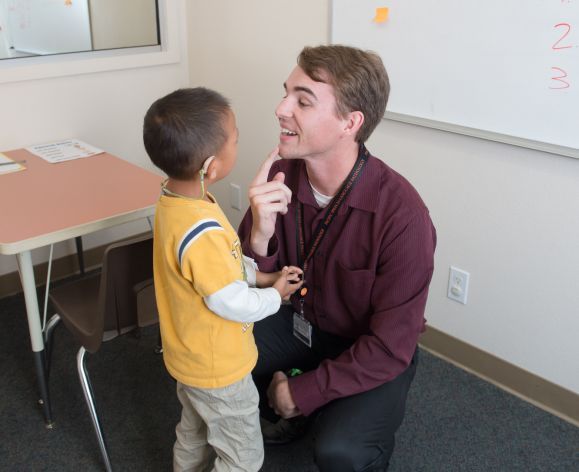How a Speech Pathologist Can Help Improve Communication Skills
Effective communication is a cornerstone of personal and expert success, yet many individuals face challenges that hinder their ability to share themselves plainly. A speech pathologist is outfitted to resolve these obstacles with targeted evaluation and intervention techniques tailored per person's requirements. By utilizing evidence-based restorative techniques, they not just work to enhance speech and language conditions but also boost general communicative skills. Comprehending the multifaceted duty of a speech pathologist discloses exactly how their competence can transform lives, inviting a more detailed assessment of the particular methods and end results connected with their method.
Understanding Interaction Disorders
Comprehending communication conditions is important for acknowledging how they affect individuals' capability to share themselves and engage with others. Interaction disorders include a large range of difficulties that impact speech, language, and social communication, frequently preventing effective communication. These problems can arise from different factors, including neurological problems, developing delays, physical disabilities, or emotional issues.
Speech problems may materialize as troubles in fluency, voice, or expression production, impacting just how words are obvious or spoken. Language disorders, on the other hand, entail obstacles in understanding or using language, which can hinder both non-verbal and spoken interaction. Social interaction disorders are characterized by difficulties in the pragmatic elements of interaction, such as taking kip down discussion or understanding social signs.
The effects of communication disorders are profound, impacting not only the individual's capability to communicate emotions and thoughts however likewise their social connections, academic chances, and general high quality of life. Understanding of these conditions can promote compassion and support, motivating efficient techniques for communication and engagement. Understanding the complexities of interaction disorders is an essential step towards advertising inclusivity and resolving the demands of those impacted.
Function of a Speech Pathologist
Speech pathologists often play a vital duty in diagnosing and dealing with communication problems, using a variety of evidence-based techniques tailored per person's requirements. These professionals deal with people across the lifespan, from youngsters with speech hold-ups to adults recouping from strokes or distressing brain injuries. Their knowledge encompasses a selection of communication issues, consisting of articulation, language, fluency, and voice conditions.
In therapeutic setups, speech pathologists utilize organized interventions made to improve communication abilities. They may carry out techniques such as speech workouts, language games, and social interaction training to help with renovations in receptive and meaningful language abilities. Speech Pathologist. In addition, they educate customers and their families regarding effective communication strategies and adaptive approaches to navigate daily communications
Beyond direct treatment, speech pathologists collaborate with various other healthcare teachers, specialists, and caregivers to make sure a thorough approach to treatment. They support for customers by providing resources and support, allowing people to attain their communication goals and enhance their general high quality of life. As specialists in the area, speech pathologists are important in promoting efficient interaction, advertising freedom, and boosting social participation for those with communication challenges.
Evaluation and Diagnosis Process
The evaluation and diagnosis process carried out by speech pathologists normally entails a thorough analysis to recognize interaction problems properly. This procedure starts with a thorough instance background, where the medical professional collects essential details regarding the individual's medical, educational, and developmental history. Recognizing the context of the person's interaction problems is vital for a precise diagnosis.
Following the instance background, speech pathologists use standardized tests and casual analyses to examine various facets of interaction, consisting of speech noise manufacturing, language comprehension, expressive language, and social interaction skills. These analyses he has a good point are customized to the individual's age and details worries, offering valuable information for analysis.
Observation is additionally an essential element of the assessment procedure, as it allows the medical professional to see firsthand just how the private communicates in all-natural settings. In addition, see this here interviews with household members and educators can supply insight right into the person's communication challenges across various atmospheres.
As soon as the assessment is full, the speech pathologist synthesizes the searchings for to identify a medical diagnosis and suggest ideal interventions. This detailed evaluation procedure guarantees that people receive targeted assistance tailored to their distinct interaction needs, laying the structure for effective restorative approaches.
Therapeutic Methods and Approaches
Various restorative strategies and techniques are used by speech pathologists to address a variety of interaction problems effectively. One commonly used approach is articulation therapy, which focuses on remedying speech appears through repeating and visual cues. This technique is especially advantageous for people with speech audio disorders.
One more efficient approach is language treatment, which enhances both expressive and receptive language abilities. This may include interactive activities that promote vocabulary advancement, syntax understanding, and conversational abilities. In addition, speech pathologists often use social skills training to improve practical language abilities, enabling individuals to browse social communications extra efficiently.
Fluency shaping and stuttering alteration strategies are especially made to aid those experiencing fluency conditions. These techniques assist clients develop smoother speech patterns and manage the psychological and physical parts of stuttering.
Moreover, augmentative and alternative interaction (AAC) systems are utilized for people with serious communication impairments. These systems, which can consist of motions, signs, or electronic tools, supply vital support for effective interaction.
Benefits of Speech Therapy

Additionally, speech treatment can aid in establishing important listening and comprehension abilities, cultivating much better interaction in conversations. People with cognitive-communication conditions can likewise benefit, as treatment focuses on strengthening memory and analytic capacities, vital for efficient communication.
An additional important element is the emotional assistance offered throughout treatment sessions. Speech pathologists create a safe atmosphere, encouraging people to get rid of anxiety and aggravation pertaining to their interaction issues. This assistance can result in improved self-confidence and overall psychological wellness.
Moreover, very early intervention via speech treatment can avoid more issues, guaranteeing that people reach their full communicative potential. Generally, the benefits of speech treatment extend past mere speech renovation, positively influencing various dimensions of life for those affected by communication troubles.
Conclusion
In summary, speech pathologists play a crucial function in resolving communication conditions via assessment, diagnosis, and customized healing interventions. By utilizing evidence-based strategies, these professionals enhance people' speech and language capacities, fostering improved clearness, fluency, and social communication abilities. The advantages of early intervention highlight the relevance of looking for assistance from speech pathologists, as their expertise can substantially improve communicative possibility, inevitably leading Bonuses to higher success in both individual and specialist rounds.

Speech pathologists regularly play an important function in detecting and treating communication disorders, utilizing an array of evidence-based techniques tailored to each individual's demands. As experts in the field, speech pathologists are vital in cultivating reliable communication, promoting self-reliance, and boosting social engagement for those with interaction challenges.
